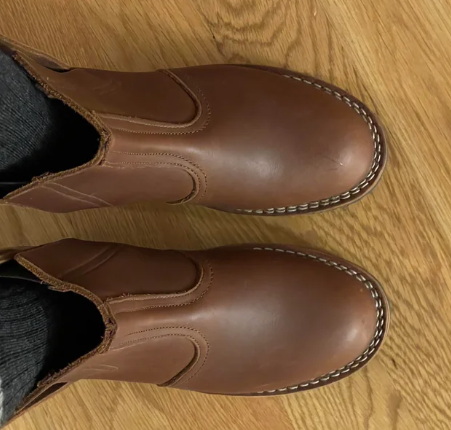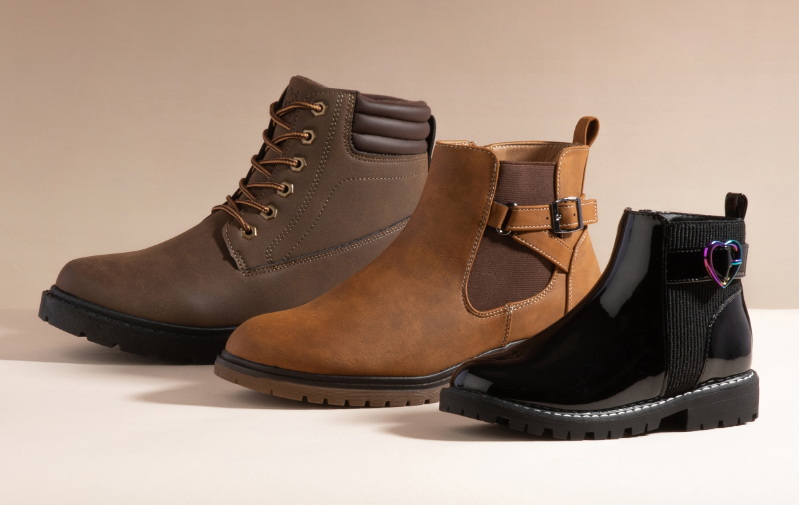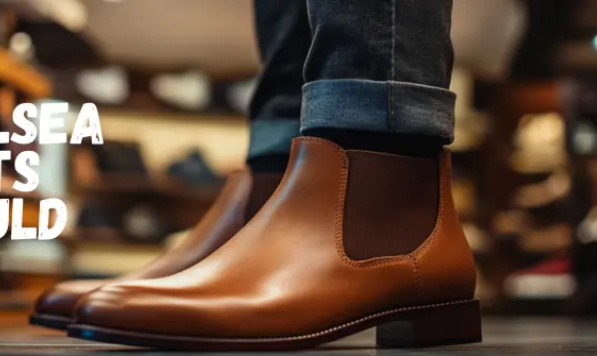Content Menu
● Introduction to Chelsea Boots
>> Key Features of Chelsea Boots
● History of Chelsea Boots
>> Victorian Era Origins
>> Mid-19th Century Popularity
>> 1960s Revival
● Why Are They Called Chelsea Boots?
>> Cultural Impact
● Styling Chelsea Boots
>> Casual Outfits
>> Formal Outfits
● Evolution of Chelsea Boots
>> Modern Variations
● Impact on Fashion Trends
● Conclusion
● FAQs
>> 1. Who Invented the Chelsea Boot?
>> 2. Why Are They Called Chelsea Boots?
>> 3. What Are the Key Features of Chelsea Boots?
>> 4. How Should Chelsea Boots Fit?
>> 5. Can Chelsea Boots Be Worn with Formal Outfits?
The Chelsea boot, a timeless and versatile piece of footwear, has a rich history that spans centuries. From its origins in the Victorian era to its modern-day popularity, the Chelsea boot has evolved significantly while retaining its core characteristics. This article delves into the history, design, and cultural impact of Chelsea boots, exploring why they are called as such and how they have become an integral part of fashion worldwide.

Introduction to Chelsea Boots
Chelsea boots are known for their elastic side panels, which allow for easy on and off wear without the need for laces or buckles. This design feature was revolutionary when first introduced by J. Sparkes-Hall, a London-based shoemaker, during the Victorian era. Initially called "paddock boots" or "J. Sparkes-Hall boots," they quickly gained popularity among equestrians and the general public for their practicality and comfort.
Key Features of Chelsea Boots
- Elasticated Sides: The hallmark of Chelsea boots, these allow for effortless wear and removal.
- Ankle Height: Designed to cover the ankle, providing protection and style.
- Low Heels: Originally intended for walking, not high heels.
- Two-Part Construction: The vamp and quarters are joined by elastic near the ankle.
- Rounded Toes: Typically plain and unembellished, though variations exist.
History of Chelsea Boots
Victorian Era Origins
The Chelsea boot's origins date back to the early 19th century when J. Sparkes-Hall designed them. Queen Victoria herself was a patron of these boots, appreciating their convenience for horse riding and walking. The invention of vulcanized rubber by Charles Goodyear in 1844 was crucial for the elastic panels, making the boots more durable and practical.
Mid-19th Century Popularity
By the mid-19th century, Chelsea boots had become popular among equestrians due to their ease of use. The elastic sides allowed riders to quickly remove their boots after riding, which was a significant advantage over traditional boots with laces. This practicality extended beyond equestrians, as the boots were also favored by the working class for their comfort and ease of wear.
1960s Revival
The 1960s saw a resurgence in Chelsea boots' popularity, particularly among the British mod culture. Icons like The Beatles and The Rolling Stones frequently wore them, further popularizing the style globally. The mod subculture, known for its sleek, modernist aesthetic, found Chelsea boots to be the perfect footwear for their sharp suits and stylish outfits.

Why Are They Called Chelsea Boots?
The name "Chelsea boot" is attributed to their popularity in the Chelsea area of London during the 1950s and 1960s. The "Chelsea Set," a group of fashionable and influential individuals, often wore these boots, associating them with the area's vibrant fashion scene. This association not only gave the boots their name but also cemented their status as a fashion staple.
Cultural Impact
Chelsea boots have transcended their working-class roots to become a staple in high fashion. They have been featured on runways and in luxury collections, appealing to both men and women for their versatility and timeless elegance. Designers often experiment with materials and colors, creating versions that range from classic leather to bold, statement pieces.
Styling Chelsea Boots
Chelsea boots are incredibly versatile and can be styled with a wide range of outfits. From casual jeans and blazers to formal dresses and suits, they add a touch of sophistication to any look.
Casual Outfits
- Jeans and T-Shirt: Pair with a leather jacket for a chic, casual look.
- Dresses: Add a pair of Chelsea boots to a flowy dress for a stylish, bohemian vibe.
- Shorts: In warmer weather, Chelsea boots can add a stylish touch to shorts and a button-down shirt.
Formal Outfits
- Suits: Chelsea boots can modernize a traditional suit.
- Skirts: Pair with a skirt and tights for a sophisticated winter look.
- Dresses for Evening Events: For a more formal evening look, Chelsea boots can complement a dress with elegance.
Evolution of Chelsea Boots
Over the years, Chelsea boots have evolved to include various styles and materials. From suede and leather to more exotic materials like alligator skin, the options are endless. Additionally, designers have experimented with different colors, patterns, and embellishments, making Chelsea boots suitable for a wide range of fashion preferences.
Modern Variations
- Suede Chelsea Boots: Offer a softer, more luxurious feel.
- Chelsea Boots with Buckles: Some modern designs incorporate buckles for added style.
- Chelsea Boots with Heels: For those who prefer a bit of height, heeled versions are available.
Impact on Fashion Trends
Chelsea boots have influenced fashion trends significantly, particularly in their ability to bridge casual and formal styles. They are often seen as a staple in minimalist wardrobes due to their simplicity and versatility. The boots have also inspired other footwear designs, with elements like elastic sides appearing in various forms across different shoe styles.
Conclusion
Chelsea boots are a testament to timeless fashion, with their origins rooted in practicality and their popularity sustained by their versatility. From their Victorian beginnings to their modern-day appeal, Chelsea boots continue to be a staple in many wardrobes around the world. Their ability to transcend seasons and styles has cemented their place in fashion history.

FAQs
1. Who Invented the Chelsea Boot?
The Chelsea boot was invented by J. Sparkes-Hall, a London-based shoemaker, during the Victorian era. He designed them initially as "paddock boots" for Queen Victoria.
2. Why Are They Called Chelsea Boots?
They are called Chelsea boots due to their popularity among the fashionable "Chelsea Set" in London during the 1950s and 1960s.
3. What Are the Key Features of Chelsea Boots?
Key features include elasticated sides, ankle height, low heels, and a two-part construction with a rounded toe.
4. How Should Chelsea Boots Fit?
Chelsea boots should fit snugly around the ankle without being too tight. The elastic sides will stretch over time, so a snug initial fit is important.
5. Can Chelsea Boots Be Worn with Formal Outfits?
Yes, Chelsea boots can be worn with formal outfits. They add a modern touch to traditional suits and dresses.

















